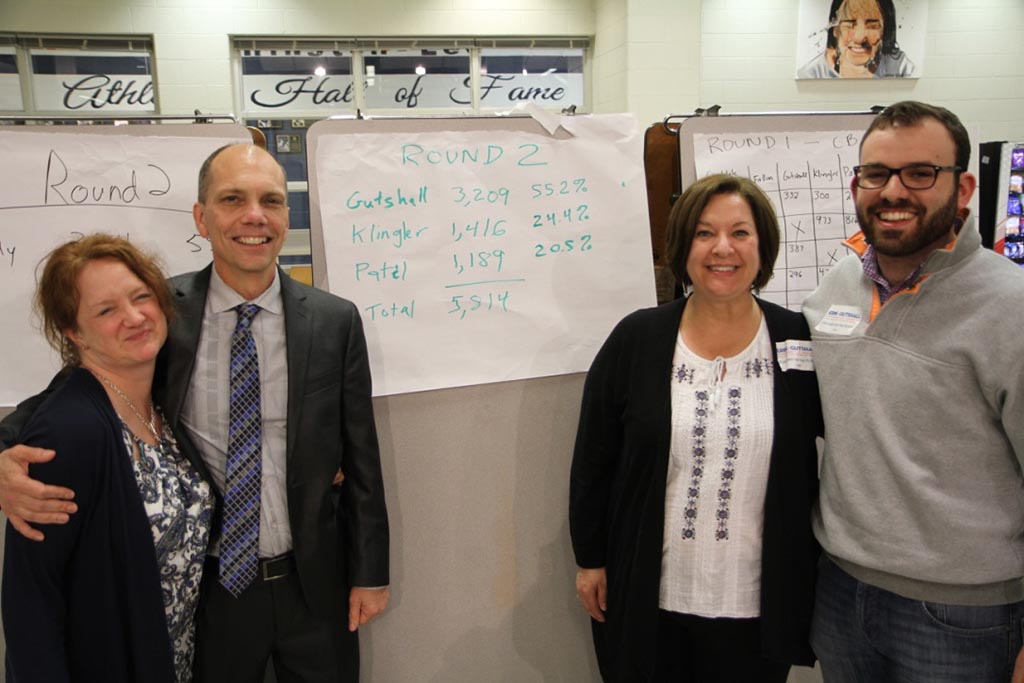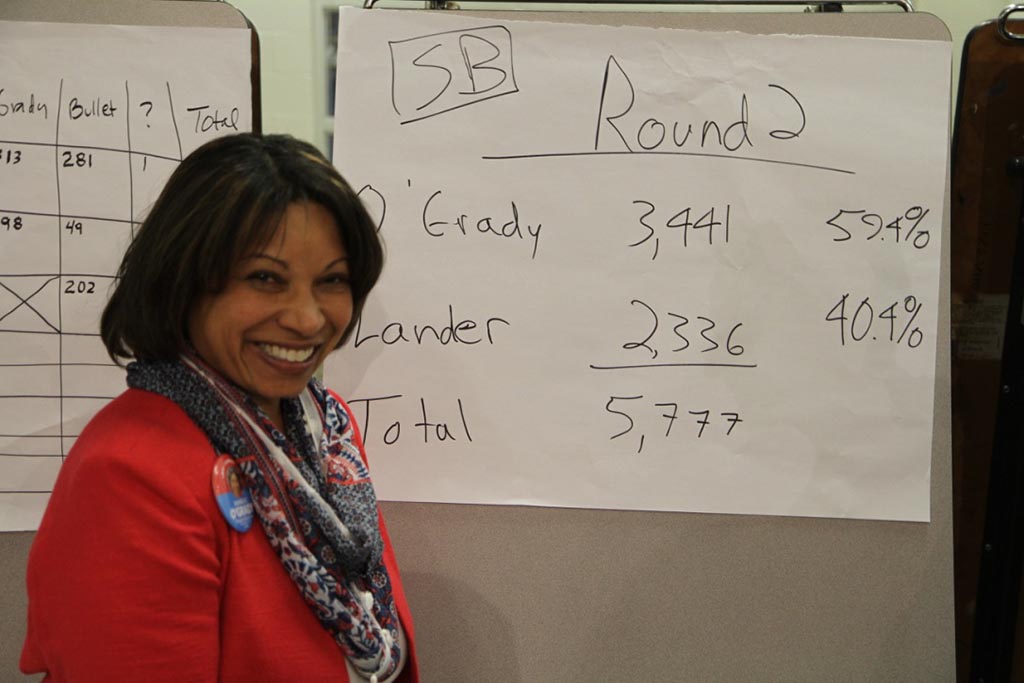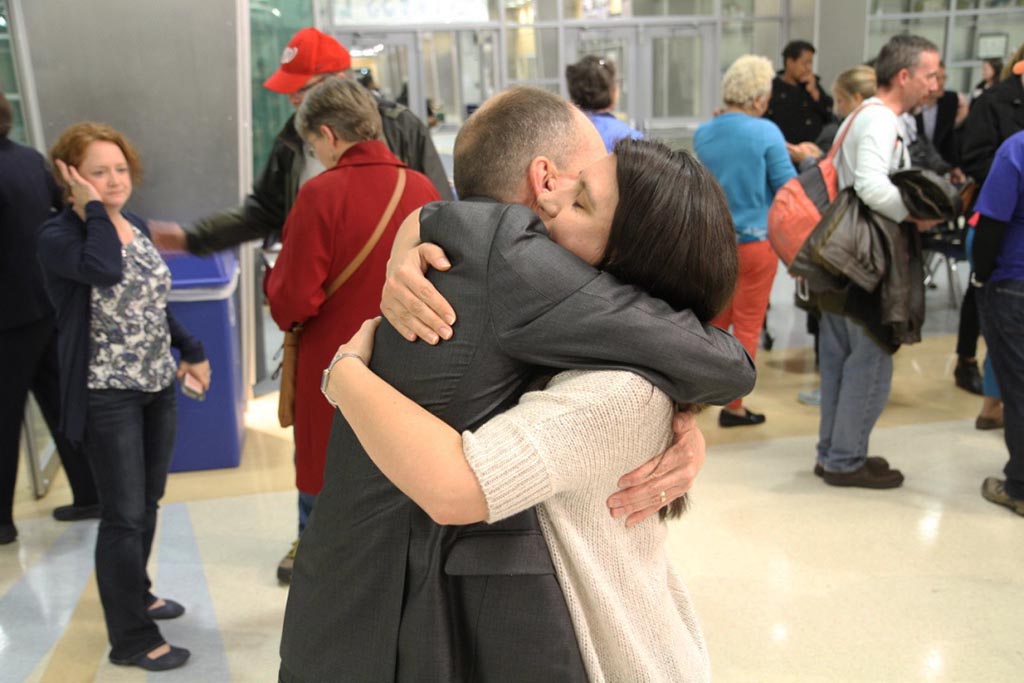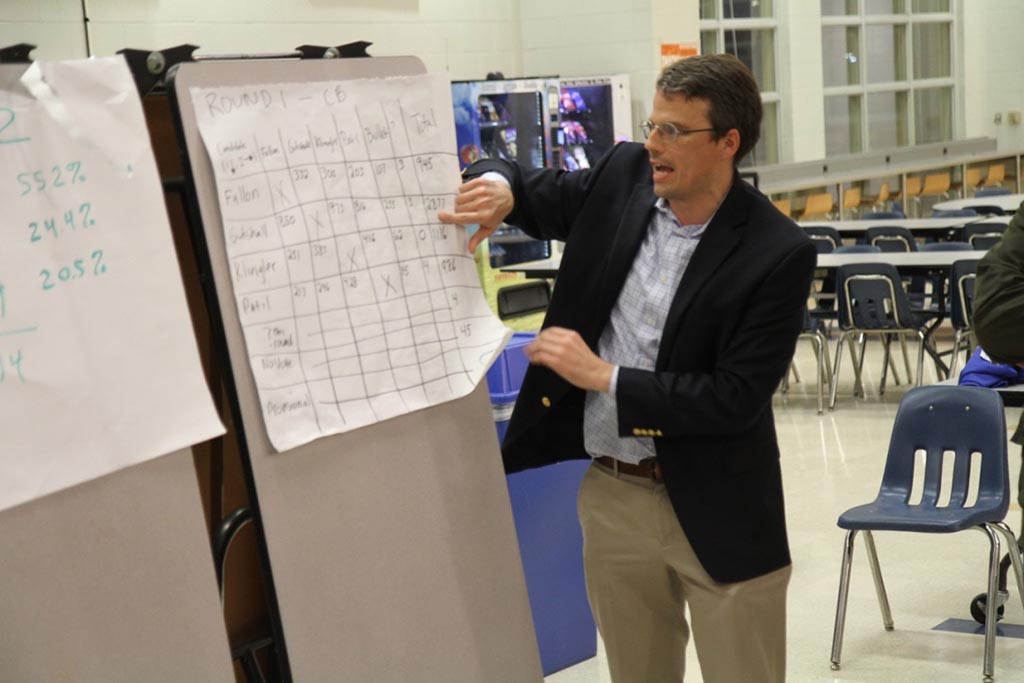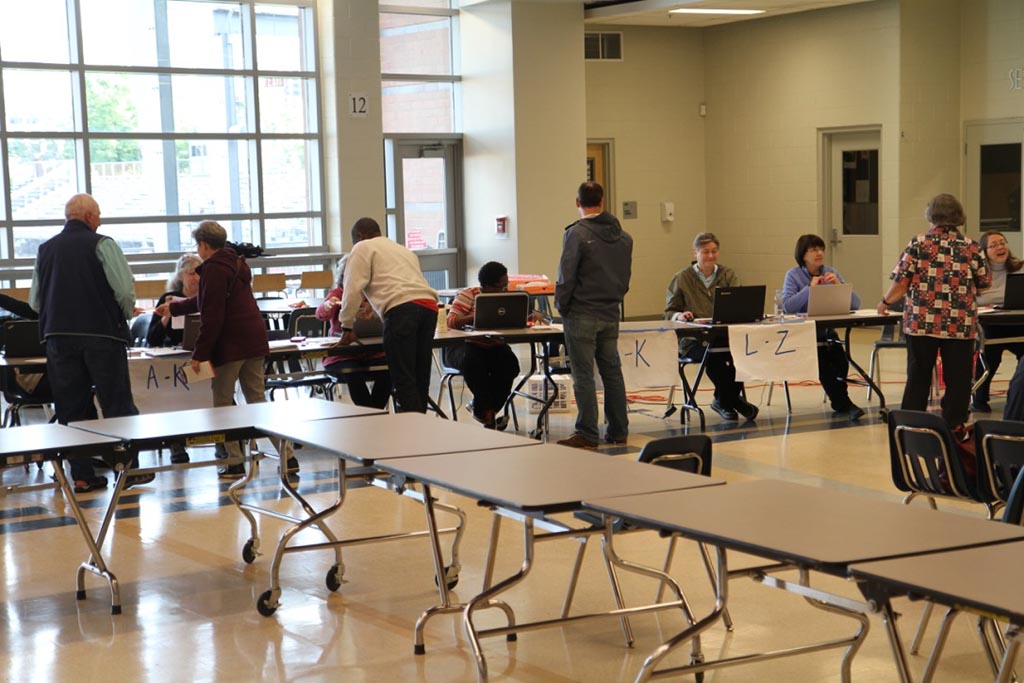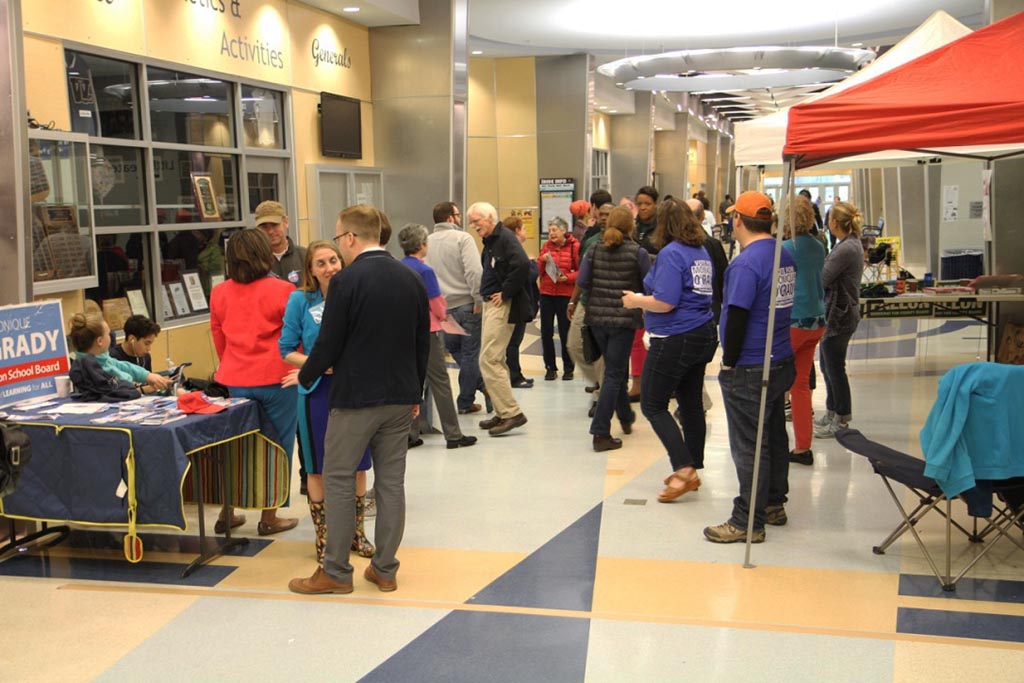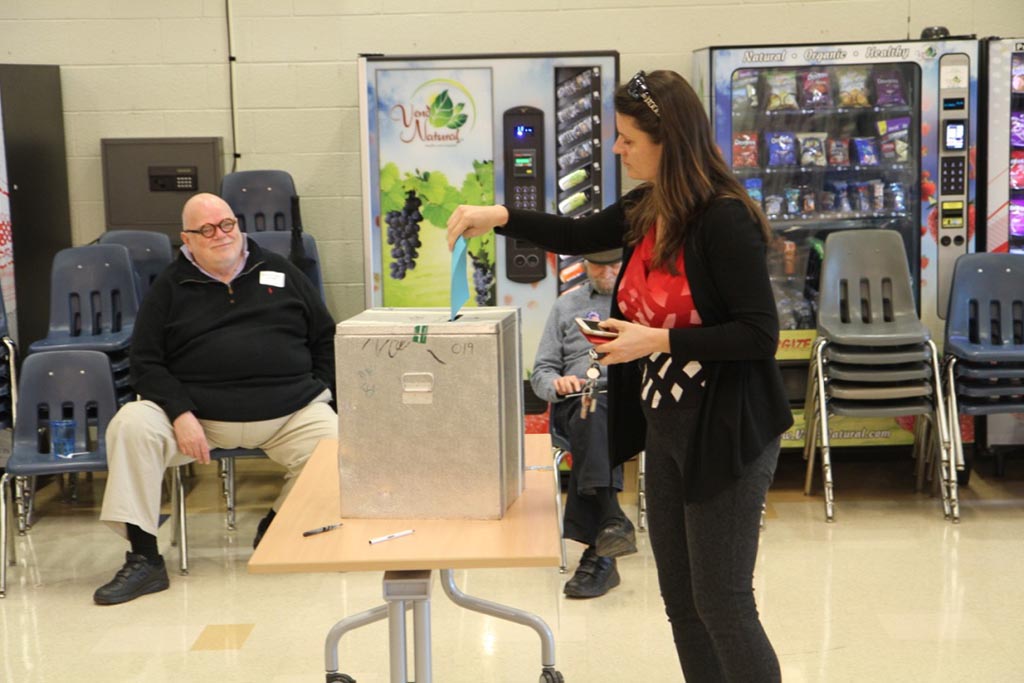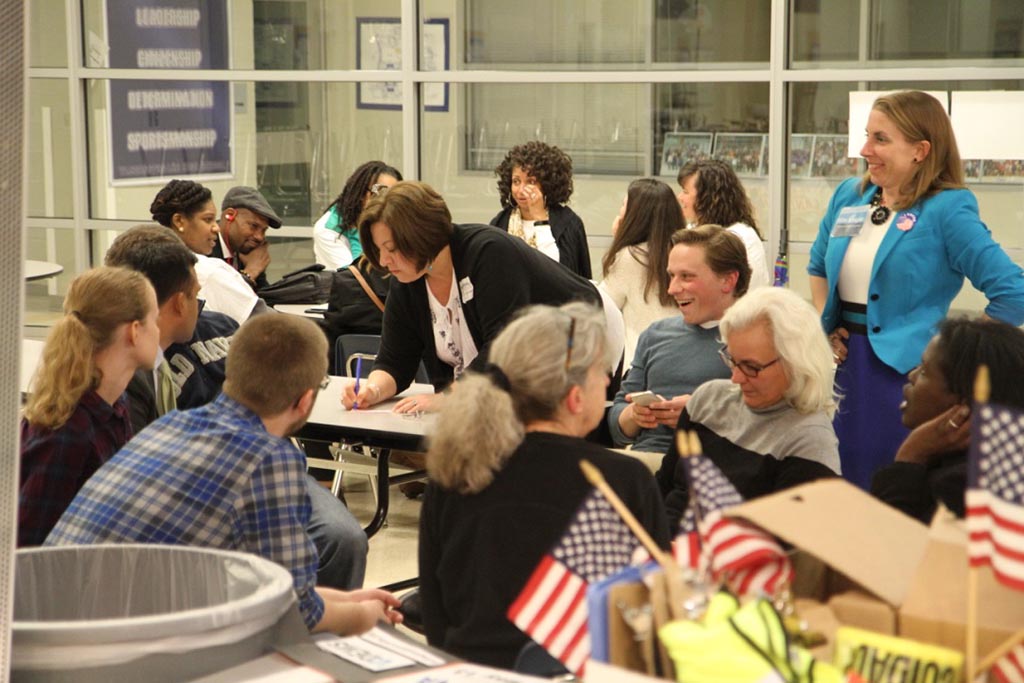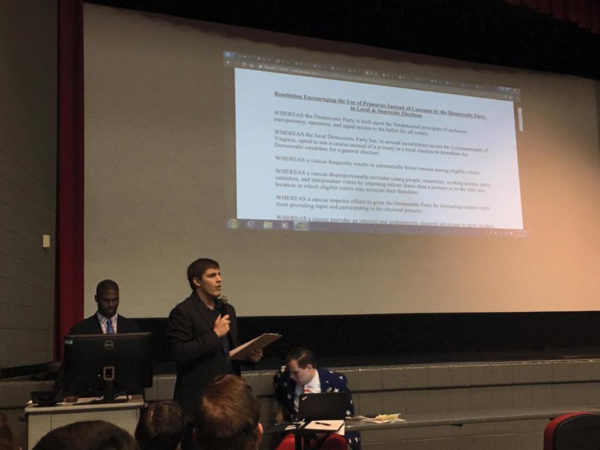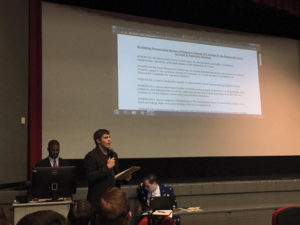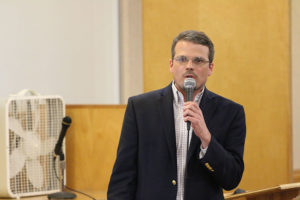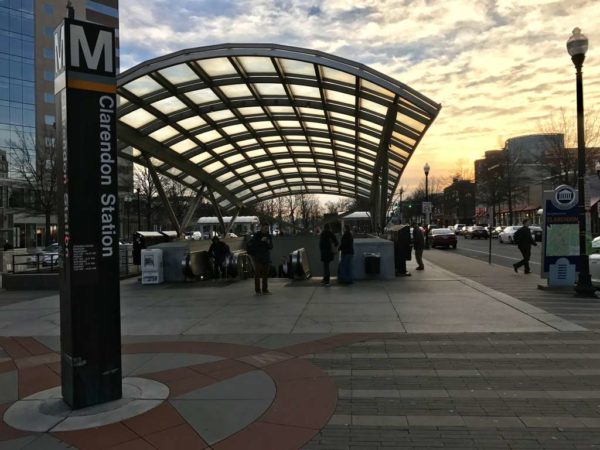(Updated 10:25 p.m.) Erik Gutshall and Monique O’Grady were victorious at the Arlington County Democratic Committee caucus, winning the County Board nominee and School Board endorsement, respectively.
The final turnout of 5,972 votes is a record for a Democratic caucus held in the county, beating the previous high of 4,951 in the 1993 caucus for County Board. Voters cast ballots across three days at Francis Scott Key Elementary School on Tuesday, Drew Model School on Thursday and Washington-Lee High School Saturday.
Gutshall earned 3,209 votes to finish ahead of Kim Klingler with 1,416, Vivek Patil with 1,189 and Peter Fallon with 945. O’Grady got 3,441 votes, ahead of seven-year incumbent School Board member James Lander’s 2,336 votes and Maura McMahon’s 965.
“I think Arlington is definitely ready to move forward and make sure that we’re focused on the future,” Gutshall said. “That’s what I ran on, and I look forward to fulfilling everything that we’ve talked about in this campaign.”
O’Grady said she wants to repay her supporters’ faith in the November general election and beyond, if she wins a seat on the School Board.
“I want them to know I’m going to work very hard to follow everything that I’ve laid out in this campaign,” she said. “I’ve heard them, I will continue to listen to them and will continue to work so hard for our students. I will listen to them, I will listen to our students, I will listen to our parents as we continue to try to figure out how to handle some of the issues we’re dealing with in Arlington.”
For Gutshall, who came into the three-day caucus with a slew of endorsements from current and former elected officials, it represents a redemption of sorts after he lost the 2016 primary to Libby Garvey.
Gutshall said despite the defeat, he was determined for his vision to be heard at the highest levels of county government.
“It’s knowing that the future of Arlington matters, and that we are this great progressive success story that I want to see continue,” he said. “I have roots here. I’ve got my business here, I’ve got my family here, this is where I’m meant to be and it’s a great place to be and a great community and I want to make sure we keep moving forward into the future.”
Defeated County Board candidates Klingler and Patil congratulated Gutshall on a positive campaign, and said they were positive about the county’s future direction.
“Hopefully some of my messaging and priorities resonated throughout the campaign, because that’s what’s important to me,” Klingler said. “I hope we will carry those messages forward.”
“What I’m really happy about is the amazing campaign we ran,” Patil said. “I’m very proud of the ideas we brought to the race, the stories we told. I’m going to do this. I said on my first day, if I’m going to lose, it doesn’t matter, because I have actually won a lot of faith and support in the community for our ideas and our vision.”
The high turnout, albeit lower than for primary elections in the past, gave Democratic leaders cause for optimism ahead of June’s primary elections and November’s votes for Governor, Lt. Governor, Attorney General and the House of Delegates.
“Turnout is high and people are excited, so it’s a win for the Democrats,” said School Board vice chair Barbara Kanninen.


